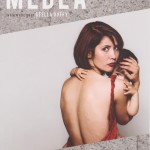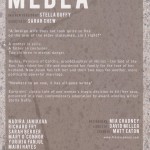End of the American Empire
China’s call today for a new global reserve currency to replace the dollar spells the beginning of the end of the American Empire. China holds most of the dollar credit in the world, and that of course gave China a powerful incentive to maintain dollar hegemony. That China now views the risks to world trade from the US’ indebtedness, to outweigh the potential loss in value of its own dollar reserves, is the tipping point that spells the inevitable beginning of the end of the US empire.
The reserve currency system has since 1795 allowed empires to be built on the economic output of weaker powers. If you achieve sufficient economic power and control of resources that yours is the currency everyone holds, you can print as much of it for yourself as you like and the devaluation effects are spread around not just your economy, but everyone else who holds your deposits. Being the reserve currency is a license to print money. Both the British and the Americans used this position to build military forces which could dominate both formal and informal empires. Both eventually experienced overreach, with military expenditure pushing deficit finance to the point of implosion. Then you lose reserve currency status.
It happened to the British and now it is happening to the Americans.
The colossal 4.7% a year of its wealth the US throws away on defence and security expenditure (broadly defined) – more than double the European average – is a huge factor in US indebtedness. There is an extraordinary failure to mention this in the mainstream media. It seems to be an Emperor’s New Clothes thing. It is the one area of expenditure the xenophobic hatemongers of the Tea Party want to see increased, and the existence of Empire causes all career politicians to compete in public displays of patriotism. That has been a political fact since the dawn of time. Defence spending is a sacred cow, unmentionable in the United States. They probably have a couple of decades to come fully to terms with the fact that they will no longer be in a position to invade who they will in order to control their mineral and other commodity resources. As with the British empire, the beetle on its back will kick its legs a while yet. It will be painful for them.
I shall enjoy it. I never claimed to be a good person!

